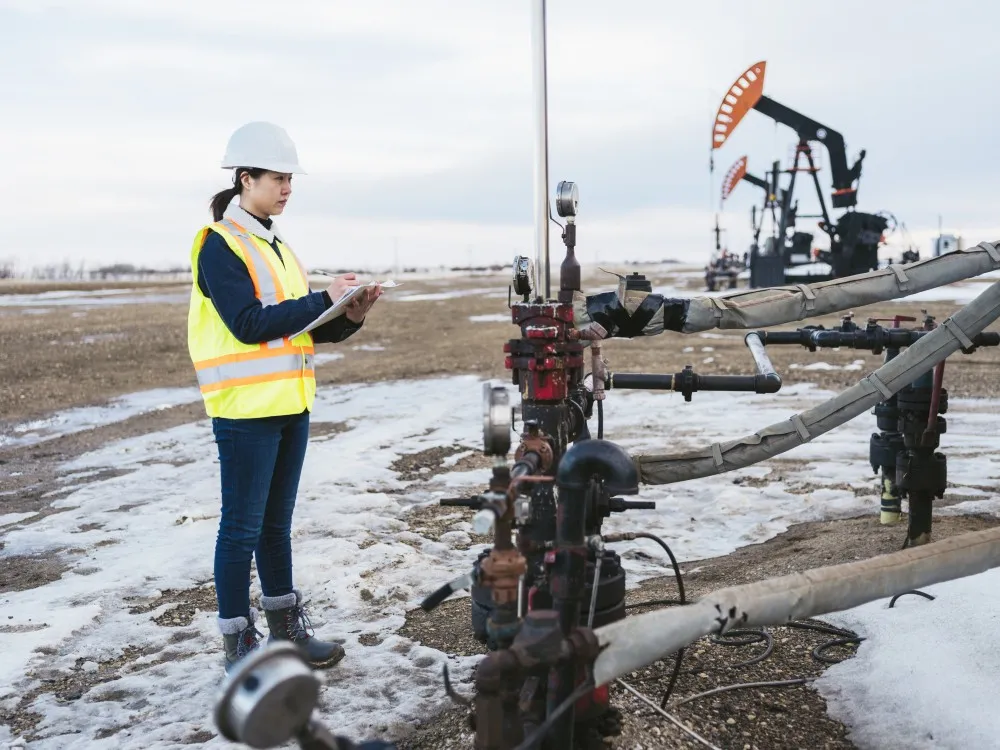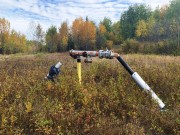As Canada finalizes amendments to its oil and gas methane regulations, it’s important to recognize that reducing methane emissions makes abundant sense, even (or especially) now.
With the ongoing threat of trade war, Canada is facing serious economic uncertainty, and it may be tempting to say “now is not the time” to further regulate Canadian companies. However, reducing methane emissions increases the efficiency and competitiveness of our oil and gas sector, meaning now is exactly the time for common-sense, achievable methane regulations.
Action on methane is key to diversifying trade partners
The threat of trade war has highlighted the importance of not putting all of Canada’s eggs in one basket when it comes to trade. As Canada looks to diversify trade partners for our energy products, likely candidates include regions such as the European Union, Japan and South Korea.
These regions want low-methane energy products.
For instance, the European Union has placed strong measurement, monitoring, reporting and verification requirements on energy imports – meaning exporting countries must keep good track of methane emissions along the supply chain and share this information with importers. The EU also plans to create a methane intensity standard, meaning companies will need to have low emissions relative to production to maintain market access.
Japan and South Korea, too, have turned their attention to methane along the natural gas value chain through the CLEAN partnership – a coalition of liquified natural gas (LNG) purchasers that will collect data on methane emissions from LNG projects.
Far from disadvantaging industry, strong methane regulations prepare companies to stay in the game as the global low-carbon energy economy takes shape.
Reducing methane emissions enhances energy security
Given significant international uncertainty, potentially diminished bi-lateral trade, threats to our sovereignty, and an ongoing affordability crisis, Canadians rightly want to ensure Canadian energy remains abundant and affordable. When energy security really matters, it makes no sense to waste energy products.
But methane gas is routinely wasted, because oil and gas infrastructure leaks and vents it. Since methane is the main component of natural gas, this means saleable or useable gas goes to waste. In 2022, Canada’s oil and gas industry wasted 2.1 million tonnes of methane gas, which equals the energy use of 10.4 million homes for one year. The federal methane regulations will vastly reduce wasted gas by increasing leak inspections and prohibiting routine venting.
Conserving methane prevents lost royalties
Keeping methane in the pipe also means preventing lost government revenues in the form of royalties. Governments collect royalties on marketed oil and gas, which is a significant source of revenue for producing provinces like Alberta. An economic analysis found that in 2022, Alberta lost $121 million in royalties due to gas being wasted through leaking and venting.
Ensuring royalties are not lost would be especially important if tariffs are placed on Canada’s energy products. At a time like this, governments shouldn’t willingly allow wasted gas to cut into revenue streams.
Methane regulations create good jobs, as well as a market for products and expertise that Canada could export
An economic downturn could result in job losses in key sectors like the oil and gas industry, so opportunities for job creation matter. Canada’s workers know that keeping methane in the pipe leads to good, union jobs. In fact, a forthcoming report authored by Datu Research, with support from the Pembina Institute and Environmental Defense Fund, shows that Canada has a robust methane mitigation industry that provides high-quality, well-paying jobs. (The forthcoming report is modelled on previous research conducted in the U.S.). By pushing companies to abate more methane from more sources, the amended methane regulations will further foster the manufacture of mitigation technologies and require more skilled workers to conduct leak detection and repair surveys, install equipment to conserve gas, retrofit leaky equipment, and more.
Methane regulations also drive innovation, because requiring companies to deploy solutions means there must be solution providers. When Canadian companies innovate, they can also sell their solutions to international buyers, which can help further diversify trading ties. For instance, the Saudi Arabian oil company Aramco recently partnered with Canadian company GHGSat for satellite emissions monitoring.
Strong regulations do not hamper production
Due to community concerns about toxic sour gas emissions, the Government of Alberta introduced stringent methane regulations for the Peace River region in 2014. These regulations integrated measures similar to (or stronger) than the federal amendments, including no routine venting, limited routine flaring, and monthly leak detection and repair requirements. A Pembina Institute analysis found that these stringent regulations had zero impact on production. This means that strong regulations can be implemented without negatively impacting production.
Solutions are cost-effective
The icing on the cake is that solutions to abate methane emissions are cost-effective. They include common-sense measures like finding and fixing leaks and swapping out leak-prone equipment, as well as capturing and conserving gas that would otherwise be wasted. Many of these measures end up saving companies more money than they cost up front, making methane abatement a win-win-win for companies, the government, and Canadians.
This all might make you wonder why companies don't just capture methane voluntarily, if the benefits are so significant. The answer is that some leading companies do. But, given the upfront spending involved — despite the longer-term financial and other benefits — many do not. Updated regulations will ensure that all companies are taking the necessary steps to bring about the many benefits of methane mitigation, both for their own competitiveness, as well as for the health and wellbeing of Canadians.
In this uncertain political moment, both the industry and Canadians at large have everything to gain from Canada staying the course and publishing finalized oil and gas methane regulations.





